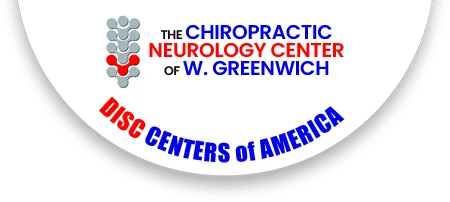Alzheimer’s Disease in West Greenwich

Are you struggling with Alzheimer’s in West Greenwich? Struggle no more, here at our Neurofeedback office in West Greenwich our board-certified doctors can perform the proper testing, create a treatment plan and get you a better way of life.
What is Alzheimer’s Disease in West Greenwich?
Alzheimer’s Disease in West Greenwich is a progressive disease that destroys memory and other important mental functions. Brain cell connections and the cells themselves degenerate and die, eventually destroying memory and other important mental functions.
In most people with the disease—those with the late-onset type—symptoms first appear in their mid-60s. Early-onset Alzheimer’s occurs between a person’s 30s and mid-60s and is very rare. Alzheimer's is the most common cause of dementia, a general term for memory loss and other cognitive abilities serious enough to interfere with daily life.
This damage initially appears to take place in the hippocampus, the part of the brain essential in forming memories. As neurons die, additional parts of the brain are affected. By the final stage of Alzheimer’s, the damage is widespread, and brain tissue has shrunk significantly. Alzheimer's disease accounts for 60-80% of dementia cases.
Symptoms of Alzheimer’s Disease
The first symptoms of Alzheimer’s vary from person to person. Memory problems are typically one of the first signs of cognitive impairment related to Alzheimer’s disease. Decline in non-memory aspects of cognition, such as word-finding, vision/spatial issues, and impaired reasoning or judgment, may also signal the very early stages of Alzheimer’s disease. Some people may be diagnosed with mild cognitive impairment. As the disease progresses, people experience greater memory loss and other cognitive difficulties. Alzheimer’s disease progresses in several stages: mild (sometimes called early-stage, moderate, and severe (sometimes called late-stage).
Signs of Mild Stage Alzheimer’s
In mild Alzheimer’s disease, many may seem to be healthy but have more trouble making sense of the world around them. The realization that something might be wrong often comes gradually to the person and family. Problems can include:
- Poor judgment leading to bad decisions
- Repeating questions
- Memory loss
- Taking longer to complete normal daily tasks
- Losing things or misplacing them in odd places
- Trouble handling money and paying bills
- Wandering and getting lost
- Mood and personality changes
- Increased anxiety and/or aggression
Signs of Moderate Alzheimer’s Disease
In this stage, more intensive supervision becomes necessary, making it difficult for many spouses and families. Symptoms may include:
- Inability to learn new things
- Increased memory loss and confusion
- Difficulty with language
- Shortened attention span
- Problems coping with new situations
- Difficulty carrying out multi-step tasks
- Problems recognizing others
- Hallucinations
- Paranoia
- Outbursts of anger
- Impulsive behavior
- Increased Anxiety
- Repetitive statements or movement
Signs of Severe Alzheimer’s Disease
People with severe Alzheimer’s cannot communicate, cannot be alone and are completely dependent on their families for care. This can really affect a family if the disease gets to this point. Their symptoms often include:
- Loss of bowel and bladder control
- Seizures
- Cannot communicate
- Skin infections
- Weight loss
- Increased sleeping
- Difficulty swallowing
Is Alzheimer’s Hereditary?
Many of you who have a family member with this disease are constantly wondering if you are at risk as well. The risk is great. If you have an immediate family member that has suffered from Alzheimer’s, then you are three and a half times more likely to have it than those without a family history. Grandparents, aunts, and uncles affected put you in a higher risk category.
Other risk factors include:
While your age, your family history and your genetics are all risk factors that we can’t change, research is revealing clues about other risk factors we may be able to influence through general lifestyle choices and effective management of other health conditions.
- Toxins
- Head Trauma
- Sleep Issues
- Diabetes/Obesity
- Blood Flow
- Inflammation
- Mental Health
- Infections
- Neurohormone Deficiencies
- Aging
Neurofeedback Therapy
If you or a family member have Alzheimer’s or Dementia, it is important to get your brain tested for mild (early-stage) Alzheimer’s. With a Qeeg brain map we can determine your next step in preventing the progression of the disease. If the map shows early slowing, Neurofeedback has been proven by science to increase the usage of brain cells making them able to function better. It also improves the speed of the brain signals improving your memory. You deserve a great quality of life. Come to our office for a Qeeg brain map by our trained professional to see what your next step should be.
Neurofeedback
OFFICE HOURS
Monday
8:30am - 12:00pm
2:00pm - 6:00pm
Tuesday
2:00pm - 6:00pm
Wednesday
8:30am - 12:00pm
2:00pm - 6:00pm
Thursday
2:00pm - 6:00pm
Friday
8:30am - 12:00pm
2:00pm - 6:00pm
Saturday
Closed
16 Nooseneck Hill Road Suite A
West Greenwich, RI 02817
Phone: (401) 397-9948
Fax: (401) 397-6218


